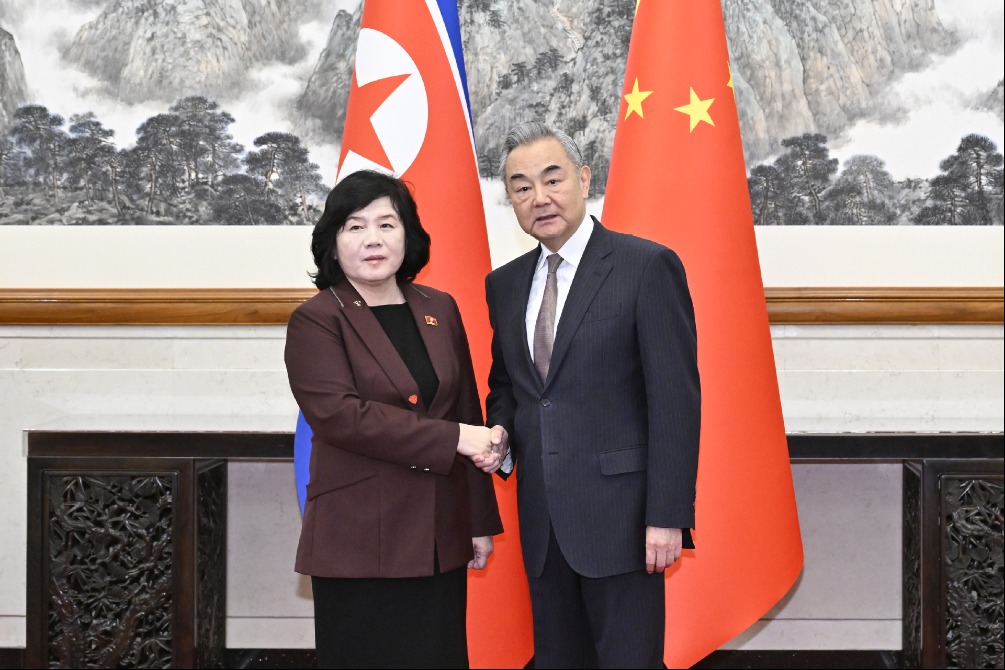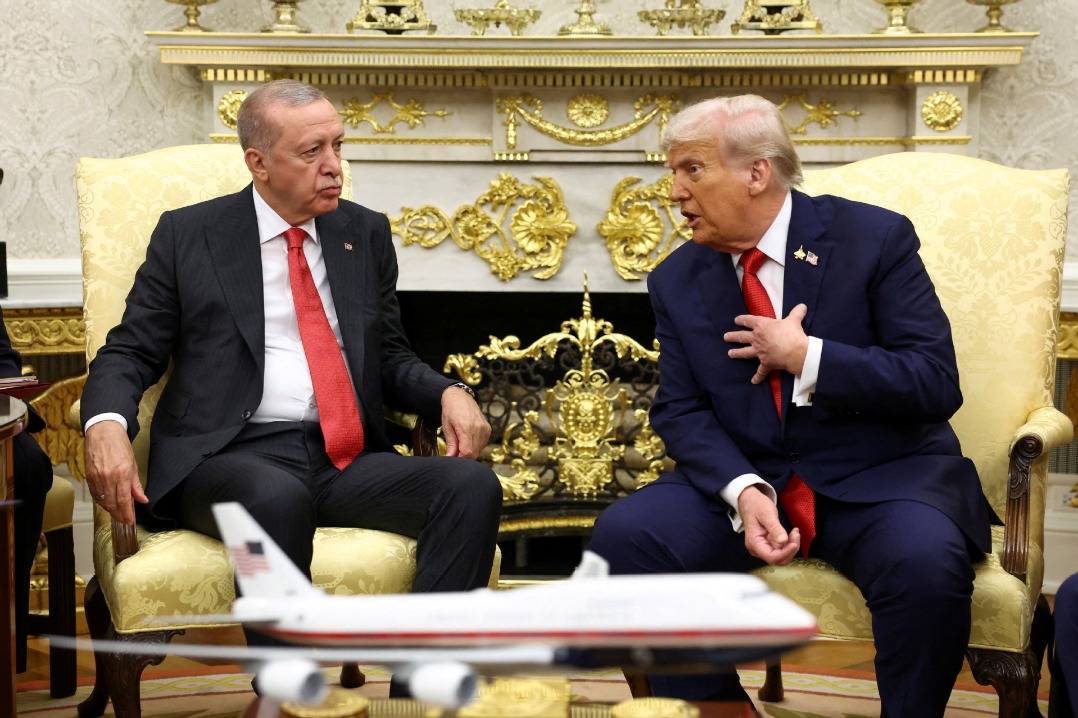China vital in reshaping intl financial architecture

China's expanding role in the global financial system reflects a deliberate and strategic effort to create a more balanced and inclusive economic order. Over the past two decades, China has positioned itself as a key architect of new financial mechanisms aimed at bolstering the growth and resilience of the Global South.
Simultaneously, it has opened its domestic financial markets to foreign participation while expanding its own banking and financial institutions abroad. This dual strategy amplifies China's influence in global finance, challenging the dominance of Western-led international institutions.
The formal launch of the New Development Bank under the BRICS framework in 2015 and the Asian Infrastructure Investment Bank in 2016 underscores China's commitment to fostering economic cooperation and financial autonomy among developing nations. Headquartered in Shanghai and Beijing respectively, these institutions provide alternative funding for infrastructure and development, diversifying the global financial landscape. By prioritizing projects in renewable energy, transportation and urban resilience, they address systemic gaps left by traditional institutions, which have historically focused on macroeconomic stability at the expense of tangible, large-scale development.
Set up with an initial capital of $100 billion each, the NDB and AIIB are a departure from Western financial hegemony. The NDB's governance model grants equal voting rights to founding members — Brazil, Russia, India, China and South Africa — regardless of economic size, ensuring no single nation dominates decisions.
This contrasts with the International Monetary Fund and the World Bank, which have been criticized for imposing structural adjustments and favoring Western voting power. The NDB's focus on mutual respect and shared interests empowers developing countries to pursue infrastructure and sustainable development without political strings.
Since 2015, the NDB has approved over $30 billion in loans for renewable energy, urban development and transport projects. Notable examples include a $500 million loan to Brazil for flood prevention and renewable energy initiatives in India and South Africa, addressing infrastructure gaps while reducing reliance on Western financial systems. These projects often incorporate climate resilience frameworks, aligning with global sustainability goals.
The AIIB, with over 100 member countries including European states, highlights China's ability to rally global support for a new financial order. Prioritizing efficiency over bureaucracy, the AIIB has financed more than 200 projects across Asia, Africa and Europe. By targeting infrastructure and sustainability, the AIIB fills gaps neglected by Western institutions, while its lean operational model minimizes delays, enabling rapid disbursement of funds during crises like the COVID-19 pandemic.
China's initiative extends beyond multilateral banks. It has gradually opened domestic financial markets, allowing foreign firms such as JP Morgan, Goldman Sachs and Black-Rock to establish wholly owned subsidiaries. This integration into global markets is paired with the internationalization of the renminbi. The RMB's inclusion in the IMF's Special Drawing Rights basket in 2016 marked a milestone in its ascent as a global reserve currency. Currency swap agreements with Argentina, Pakistan and Nigeria facilitate RMB-based trade, while NDB and AIIB bonds issued in local currencies, such as the rand and the rupee, promote financial multipolarity, reducing dollar dependency. Also, China's cross-border interbank payment systems further challenge the SWIFT network's dominance.
China's State-owned banks, such as the Bank of China and the Industrial and Commercial Bank of China, have expanded globally, with ICBC operating in over 40 countries. These institutions finance the Belt and Road Initiative projects, which channel AIIB and NDB funds into infrastructure across the Global South. Launched in 2013, the BRI has mobilized over $1 trillion for roads, railways, ports and energy projects in more than 140 countries, becoming one of history's largest infrastructure programs. Projects such as the China-Pakistan Economic Corridor and the Port of Piraeus in Greece illustrate the BRI's geopolitical and economic reach and enhancement of trade connectivity.
China's debt restructuring approach further distinguishes it from Western counterparts. When Zambia defaulted in 2022, China offered flexible terms in stark contrast to the IMF's rigid conditions. These pragmatic renegotiations reflect a willingness to adapt rather than enforce harsh repayment terms. Critics cite "debt-trap diplomacy" risks, yet empirical evidence suggests China prioritizes renegotiation over coercion, as seen in Sri Lanka's Hambantota Port case, where debt-for-equity swaps preserved sovereignty while stabilizing finances.
Beyond infrastructure, China's financial program includes establishing RMB clearing hubs in London, the United Kingdom, Frankfurt, Germany, and Singapore, advancing the currency's role in global trade. These hubs streamline transactions for multinational corporations, reducing exchange risks and fostering RMB-denominated investment. As Western institutions face governance challenges and geopolitical fragmentation, China's investments in alternative financial structures signal a shift toward multipolarity.
By creating institutions that emphasize equity, efficiency and sustainability, China is not merely challenging existing systems but reshaping the foundations of global economic governance. This transition reflects broader aspirations for a multipolar world where developing nations gain greater agency, reducing historical asymmetries in the international financial architecture. While debates over debt sustainability and geopolitical influence persist, China's pragmatic, flexible approach offers developing countries alternatives to West-dominated frameworks, accelerating the emergence of a more inclusive global order.
As the AIIB and NDB expand their portfolios and the BRI deepens connectivity, China's financial policy increasingly intertwines with global development priorities. The rise of these institutions, alongside the RMB's growing prominence, illustrates a deliberate reimagining of financial power that prioritizes collaboration over dominance and seeks to address systemic inequities. Ultimately, China is not only expanding its influence but also catalyzing a structural evolution in how the world finances growth, manages risk and shares prosperity.
The author is executive director of South-South Dialogues, a Nairobi-based development communications think tank.

































